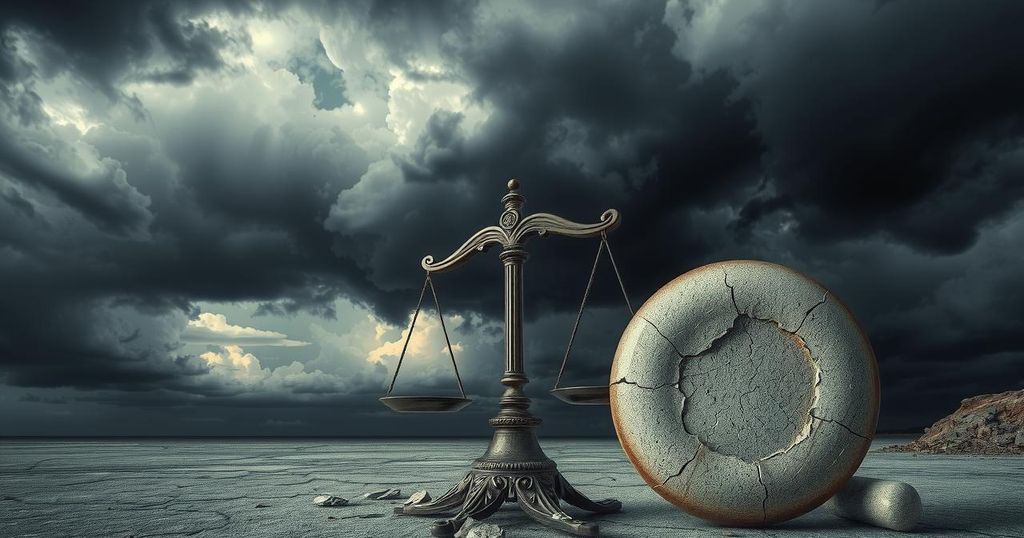The U.N. has expressed grave concerns about escalating violence in eastern DRC due to M23 rebels, highlighting incidents of summary executions and widespread sexual violence against civilians. The situation worsens as the conflict expands into new territories, stressing the need for accountability and protection for displaced individuals.
The United Nations has raised urgent concerns over the escalating violence in the eastern Democratic Republic of Congo, primarily due to the advancing M23 armed group. Following their recent takeover of Goma, the capital of North Kivu province, reports have emerged detailing summary executions and widespread sexual violence affecting civilians. Particularly alarming is the risk as M23 moves south towards Bukavu, the capital of South Kivu province.
U.N. rights office spokesperson Jeremy Laurence reported bombings targeting sites housing internally displaced persons (IDPs), resulting in civilian casualties. He disclosed evidence of at least twelve summary executions conducted by M23 between January 26 and 28. Additionally, the group has been accused of forcibly displacing IDPs from camps, occupying local institutions, and imposing forced labor on the affected populations in its controlled regions.
Laurence highlighted cases of conflict-related sexual violence attributed to the Congolese army and allied forces, including alleged gang rapes involving at least fifty-two women. Disturbingly, DRC authorities revealed that over165 women were raped by male inmates during a prison break amid the M23 offensive on January 27. The recurrent theme of conflict-related sexual violence remains a dire issue within the eastern regions of DRC.
U.N. rights chief Volker Turk expressed particular concern about the potential for this escalation to further exacerbate sexual violence during the ongoing conflict. The proliferation of weapons in Goma increases these risks significantly, prompting calls for investigations and accountability for the perpetrators of such crimes. It is essential to ensure justice for the affected populations.
Ruth Maclean, West Africa bureau chief for the New York Times, emphasized the critical situation in Goma, where displaced individuals seek refuge from the violence but are left exposed. Many are currently living in the open, heightening their vulnerability to further violence and abuse. The U.N. and other global stakeholders continue to accuse Rwanda of supporting M23 to exploit the mineral resources of the DRC, intensifying the long-standing crisis in the area.
The ongoing conflict in eastern Democratic Republic of Congo (DRC) has roots in decades of instability involving various armed factions, exacerbated by external influences. The M23, a rebel group supported by Rwanda, has made significant territorial gains, creating a humanitarian crisis marked by violence against civilians. Human rights abuses, including summary executions and sexual violence, have become tragically prevalent in this conflict, drawing international concern and scrutiny.
The recent escalation of violence by the M23 rebels in eastern DRC is alarming, as it results in significant human rights violations, including summary executions and gang rapes. The situation poses heightened risks to civilians, particularly those displaced by violence, necessitating urgent intervention and accountability for perpetrators. International actors continue to monitor the situation, especially regarding the implications of Rwandan involvement, emphasizing the need for comprehensive investigations and support for the impacted communities.
Original Source: www.cbsnews.com




